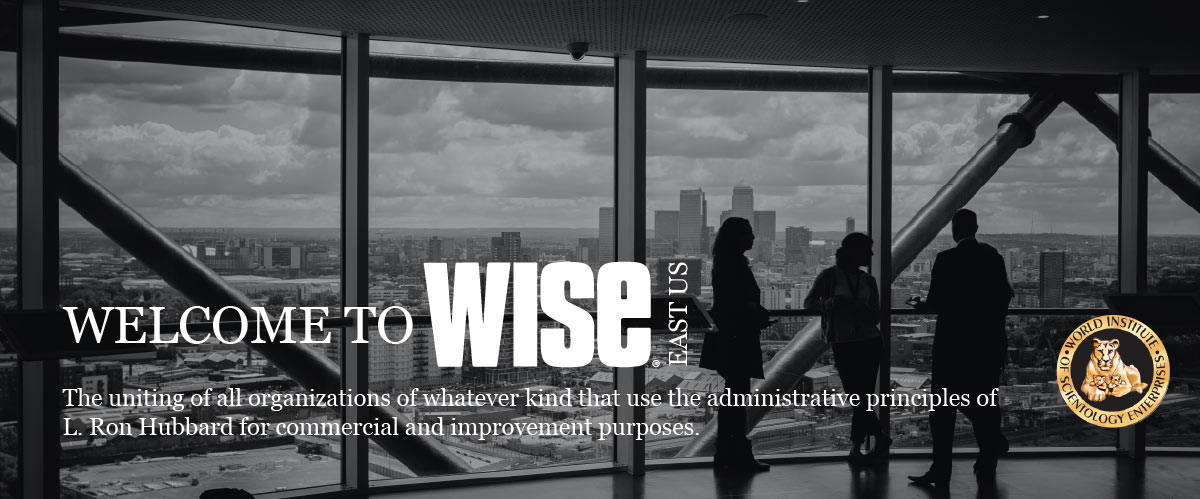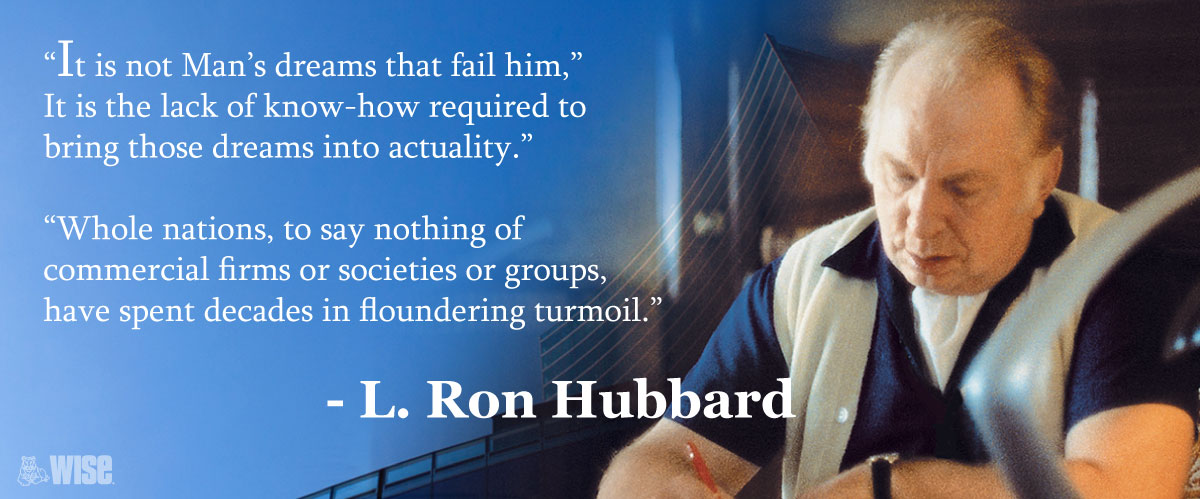

It is not Man’s dreams that fail him,” declared L. Ron Hubbard. “It is the lack of know-how required to bring those dreams into actuality.” For that reason and that reason alone, “Whole nations, to say nothing of commercial firms or societies or groups, have spent decades in floundering turmoil.”
The consequences stare back at us as headlines every day: crippling deficits, onerous taxation, failing businesses and, even in an ostensibly prosperous United States, some forty million people live below the poverty line. It is not for nothing, then, that Mr. Hubbard further declared: “Man’s happiness and the longevity of companies and states apparently depend upon organizational know-how.”
If one genuinely understood how individuals best function—their needs, aspirations and the source of their failings—one would naturally understand how groups of individuals best function. Such was the stance from which L. Ron Hubbard addressed the problems of how we cooperate with others—not with administrative gimmicks or authoritarian decrees, but with a uniquely compassionate view of groups as individuals united in a common purpose.
In all, Mr. Hubbard spent more than three decades developing and codifying the administrative policies by which companies and organizations function. Central to his body of administrative technology stands the Organization Executive Course, a 7-volume study comprising the whole of administration. These volumes provide the theory and particulars of every working facet in an organization — from hiring personnel to the ethical conduct of employees, from promotion to production standards, quality control and more. These policies are derived from the fundamental laws governing all human behavior and thus constitute an entire administrative body of knowledge. Read full article.


